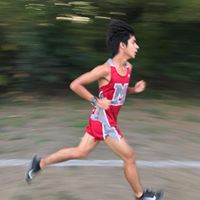
Janaina M recommends Lake County Brazilian Jiu-Jitsu
via Facebook ·
For those of you who want to practice a martial art that will add value and discipline to your life, I highly recommend it! My whole family practices and loves it, a family environment where everyone respects and helps each other! Oss.
![]()
Sean F
via Google
Carlos and Patty have created a truly amazing environment to learn in. It is genuinely like being part of a family at this gym.
The instruction that you will receive is world class, as evidenced by the amazing competitors that are products of this gym.
If you want to have an effective way of defending yourself, get fit, make friends or gain confidence; learning this discipline will give you all of these things and more.
People who come to train at the open mat from other gyms regularly comment on how great the environment is and how skilled the students are.
Come train. I wish I would have started long before I did.
![]()
Kim S
via Google
I'm just going to put it simply, this place changed my life. I decided to try something new, way out of my comfort zone. Little by little I grew stronger, more confident and I learned the techniques. The people here believe in me, coach me and encourage me to push further, be braver. They are talented, kind and strong. At the age of 43 I just registered for my first tournament and it feels amazing. Just try it, you never know what will come out of it.
![]()
Shannnon
via Google
Highly recommend Lake County Brazilian Jiu-Jitsu. I proactively transferred to this gym ~6 months ago and it has made all the difference in my jiu jitsu. The coaches are all amazing and are able to convey complex moves in simple terms so it’s easy for the athletes to grasp & actually apply the moves. Not only the coaches, but the others members at the gym watch out for their partners, the culture this gym offers is exactly what I was looking for. For those that compete, the coaches set aside their time to ensure you’re prepped and ready to go. The entire team comes together to push you in training and ensure success on the mat. I can’t say enough great things about it here ❤️.
![]()
Jody A recommends Lake County Brazilian Jiu-Jitsu
via Facebook ·
My son was extremly shy and didn’t like to be touched. I thought joining this was going to be a waist of time.. the way that coach Carlos and coach Patty interact with the kids is breathe taking. Not only do they teach them how to stand up for themselves (these days bullying is so common) they also teach them Rispect, self appreciation and most importantly discipline. So 5 stars from me.

Vicky A. recommends Lake County Brazilian Jiu-Jitsu
via Facebook ·
Coach Carlos and Coach Patty do an amazing job with the kids. A true family atmosphere

Jose R Hernandez recommends Lake County Brazilian Jiu-Jitsu
via Facebook ·
Lake County BJJ is a great place to get in shape and learn Brazilian Jiu Jitsu. Coach Carlos and Coach Patty are great instructors with adults/kids and happy to answer any questions you may have. My kids and I love training 3-4 times a week and have seen a great increase in flexibility, strength and cardio. BJJ teaches my kids confidence, discipline and respect for others, while at the same time sticking up for themselves and others. So if you ever wanted to try BJJ come to Lake County BJJ and see the difference.

Erviena Jane Pahilan recommends Lake County Brazilian Jiu-Jitsu
via Facebook ·
Our son has come really far with jiu jitsu & he loves going, especially sparring. Carlos and Patty are incredible and our son really looks up to them - they really make a difference in those kids' lives. It's like a one really big family in there. We don't regret signing him up for jiu jitsu at all. Thanks, you two!

Liz Collins recommends Lake County Brazilian Jiu-Jitsu
via Facebook ·
My daughter was having so much fun, I got jealous and signed up myself. Awesome instructors with crazy good deals on their website. Can't wait for my next class.

Stephen Wheeler recommends Lake County Brazilian Jiu-Jitsu
via Facebook ·
I have been attending classes at LCBJJ for about one year now. Coming from zero previous fighting and martial arts experience, jumping into a martial art definitely had me nervous at first. All of my nervousness was dispelled within the first week of class and I was hooked. Walking in, the atmosphere at LCBJJ is friendly and rewarding. Coach Carlos and Coach Patty are incredibly knowledgeable and friendly people who work hard with you to help you succeed. Their fundamentals class is great for people who are new to Jiu Jitsu and for older students who work hard on mastering the many basics of BJJ. Their advanced class is full of seasoned students who do not hesitate to share their vast knowledge with others and help to promote a friendly, fulfilling environment. The variety of morning and night classes help to fit class into your schedule even if you are a very busy person. All of this for me makes this review on LCBJJ an easy 5 star rating.

Vic Diaz recommends Lake County Brazilian Jiu-Jitsu
via Facebook ·
I started at LCBJJ in October of last year and have held off on writing a review until I had some time training first. I’ve been into fitness for years, but wanted to do something different. I have friends that train at other schools so I had a vague idea of what Brazilian Jiu Jitsu was and really wanted to try it. I started looking for a place to train close to home, but what made me choose Lake County BJJ (despite the 30-40 minute drive) was the convenient schedule. There really aren’t any other schools that offer daytime classes. I am a business owner and mornings are ideal, for me, to get some training in. I like the option of training mornings or evenings, once in a while both!
About the classes and gym – The training is great. I thought I was in decent shape, but have never had a workout as intense as the training at Lake County BJJ. Classes are an hour long consisting of a short warm up, technique demonstration plus drilling, and finally a few rounds of live sparring. Since starting I have lost 20 pounds and gained a higher level of endurance that I haven’t been able to achieve working out on my own. The gym itself is a good size, kept very clean and has plenty of parking.
So now onto what’s kept me going back and will keep me going to Lake County BJJ. Coach Carlos and Coach Patty are great instructors and very knowledgeable. As a 38 year old it’s a little intimidating starting something new that requires your body to move a certain way, but both Coach Carlos and Patty are always extremely patient. They take extra time to break techniques down, step-by-step, in a way that’s easy to follow. Aside from the great instruction the students are all extremely helpful. There is always someone around to answer a question or review a technique. The camaraderie is great and I always look forward to training. There are all kinds of students here, casual practitioners who come for fitness, some who train for self-defense and others who like to compete. Highly recommend going in to check the place out if you’re interested in training Brazilian Jiu Jitsu.

Emile Perez recommends Lake County Brazilian Jiu-Jitsu
via Facebook ·
I travel a lot for work and have seen my fair share of academies. Lake County is extremely clean (so important), incredibly warm and welcoming, and also had some very high class BJJ. I highly recommend this academy and will be back!!

Sean Kaulike Baumann recommends Lake County Brazilian Jiu-Jitsu
via Facebook ·
I've been going to Lake County Brazilian Jiu-Jitsu for over a year now. I couldn't have found better mats to step onto to learn and train jiu-jitsu. Coach Carlos and Patty are amazing at teaching jiu-jitsu. However it's not just that which makes them great. They build a better community around them. The support they share with you off the mat as well as on the mat is invaluable. Everyone around them is better because of them and it shows through the students that are in the gym. I really enjoy jiu-jitsu but I don't think I would love it as much as I do if it was not for Carlos and Patty.








